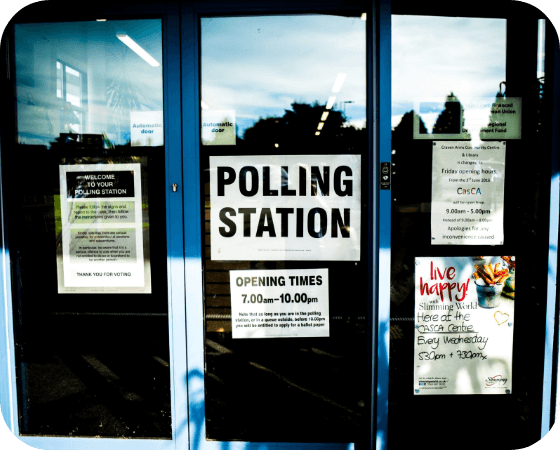Inflation. Baby formula. Gun control. Countless important issues are at the top of voters’ minds as the midterm election approaches. However, unlike previous election years, many voters aren’t saying health care is the most important issue to them. How does health care stack up against a plethora of other important issues this year, and what could change in the coming months to bring health care to the forefront of the national conversation?
What the Polls Tell Us
According to a Kaiser Family Foundation (KFF) poll conducted in March 2022, health doesn’t appear to be a leading issue among voters. When asked to name what they think will be the most important factor when voting for the 2022 midterm election, 37% of voters cited the economy, inflation, and rising prices. Other issues mentioned by voters include climate change (4%), crime (3%), the Russian invasion into Ukraine (3%), and the COVID-19 pandemic (2%).
With inflation having reached a 30-year high of 8.5% in April 2022, it shouldn’t be surprising that voters are naming economic-related issues as their top concern. However, what’s unusual about the 2022 polling is that compared to previous election years, health care isn’t even close to being a top issue for voters.
In October 2020, for example, 12% of voters told KFF that health care is their top issue, making it the fourth most-cited issue. Meanwhile, the economy was a top issue for 29% of voters, while the COVID-19 pandemic and public safety each respectively garnered 18% and 13%.
Health care was even more important to voters in 2018, a midterm election year that saw Democrats regain control of the House after flipping 41 seats. That year, 26% of respondents told KFF that health care was their top issue, placing it third on the list of topics important to voters. Corruption in Washington came in first place with 32%, while the economy and jobs came in second with 27%.
Even though voters might not cite health care as a top concern now, several factors could change in the coming months that could make health care top of mind for voters come November.
- Expiration of enhanced ACA premium tax credits. The American Rescue Plan Act of 2021 increased Premium Tax Credits (PTCs) for Marketplace insurance coverage and extended eligibility for PTCs to more individuals, making health insurance more affordable for millions in America. However, those ACA premium subsidies expire at the end of the year, and if Congress fails to renew them, 13 million Americans will start 2023 with higher insurance premiums that they may not be able to afford. Importantly, those impacted would start receiving notices about their premium increases in October, just a month before they’re set to vote in the midterm election. Furthermore, higher insurance premiums would make consumers less likely to receive care, potentially resulting in a combined $5.1 billion decline in spending on hospitals and physician practice services. Democratic lawmakers that face difficult midterm races are already sounding the alarm, it remains unclear if the Senate can pass any type of legislation before the election that includes a renewal of the ACA premium subsidies.
- Higher Medicare Part B premiums. The Medicare Part B base premium increased by 14.5% from $148.50 a month to $170.0 a month in 2022. On top of this, the annual deductible for all Part B beneficiaries increased from $203 in 2021 to $233 in 2022. When the Biden administration finalized Part B premiums and deductibles in November 2021, inflation for the upcoming year wasn’t anticipated to be much different from the usual level of 2%. However, with inflation currently hovering above 8%, higher Part B premiums are especially difficult for seniors to absorb, and continued higher-than-average inflation over the coming months could make health care costs a more important issue for seniors.
- End of public health emergency (PHE). The administration has repeatedly pledged to provide 60 days’ notice before letting the PHE expire. The end date for the current PHE is July 16, 2022, and since the administration declined to say in mid-May that it will let the PHE expire, it is all but certain that come mid-summer, the PHE will be extended through October 2022 – less than a month before the midterm election on November 8. The end of the PHE would immediately trigger a 151-day period for temporary Medicare telehealth waivers to unwind and a 365-period for states to initiate redetermination of Medicaid eligibility for all Medicaid enrollees. While the end of telehealth waivers and loss of Medicaid coverage for certain individuals wouldn’t occur until long after Election Day, starting the countdown less than a month before voters cast their ballots could cause some voters to consider health care as an important issue. However, due to the potential political implications of ending the PHE in October, it seems safe to assume that the administration will ensure the PHE remains in place until after the midterm election.
Inflation, foreign conflicts, and public safety are likely to continue to dominate voters’ thinking as the 2022 campaign season continues. However, a loss of ACA premiums subsidies, pressure from high Part B premiums, and the end of the PHE all have the potential to change the calculus for some voters as they decide who to cast their ballots for on November 8.

